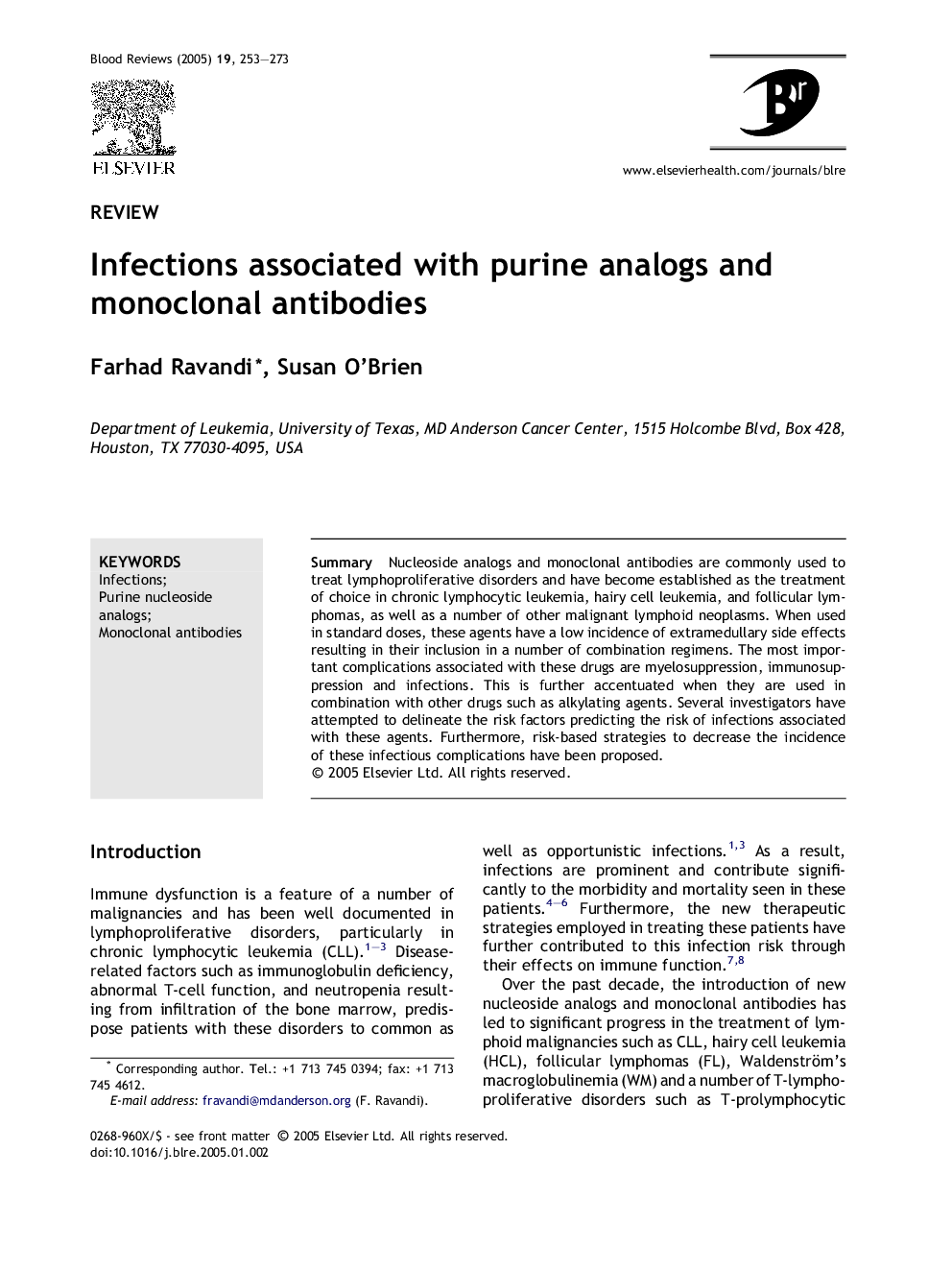| Article ID | Journal | Published Year | Pages | File Type |
|---|---|---|---|---|
| 10895825 | Blood Reviews | 2005 | 21 Pages |
Abstract
Nucleoside analogs and monoclonal antibodies are commonly used to treat lymphoproliferative disorders and have become established as the treatment of choice in chronic lymphocytic leukemia, hairy cell leukemia, and follicular lymphomas, as well as a number of other malignant lymphoid neoplasms. When used in standard doses, these agents have a low incidence of extramedullary side effects resulting in their inclusion in a number of combination regimens. The most important complications associated with these drugs are myelosuppression, immunosuppression and infections. This is further accentuated when they are used in combination with other drugs such as alkylating agents. Several investigators have attempted to delineate the risk factors predicting the risk of infections associated with these agents. Furthermore, risk-based strategies to decrease the incidence of these infectious complications have been proposed.
Related Topics
Life Sciences
Biochemistry, Genetics and Molecular Biology
Cancer Research
Authors
Farhad Ravandi, Susan O'Brien,
